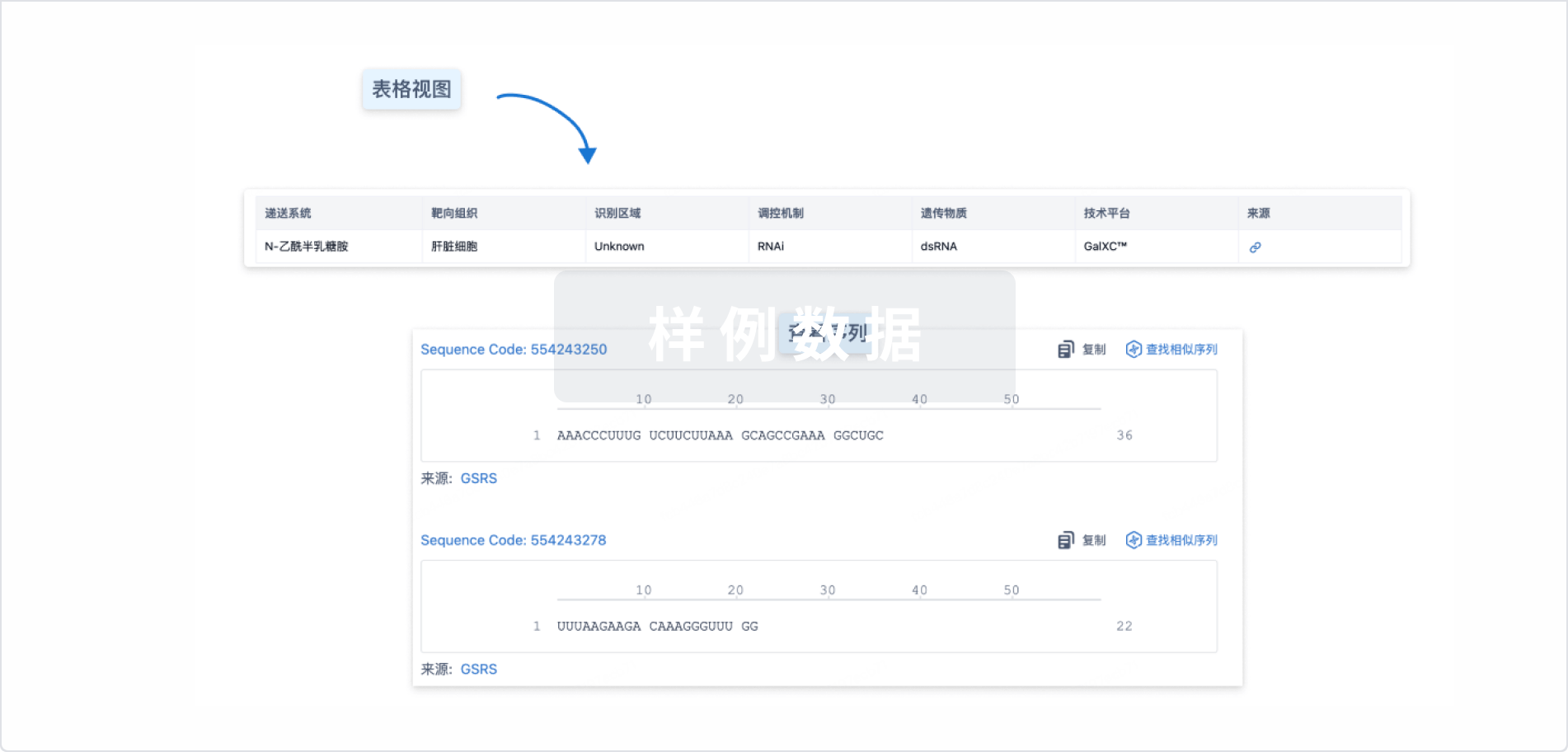预约演示
更新于:2025-05-07
ASM-8
更新于:2025-05-07
概要
基本信息
药物类型 ASO |
别名 + [1] |
作用方式 调节剂、激动剂 |
作用机制 CCR3调节剂(C-C趋化因子受体3型调节剂)、IL-3R激动剂(白细胞介素-3受体激动剂)、IL-3Rβ调节剂(colony stimulating factor 2 receptor subunit beta modulators) |
在研适应症- |
原研机构 |
在研机构- |
非在研机构 |
权益机构- |
最高研发阶段终止临床2期 |
首次获批日期- |
最高研发阶段(中国)- |
特殊审评- |
登录后查看时间轴
结构/序列
使用我们的RNA技术数据为新药研发加速。
登录
或

关联
8
项与 ASM-8 相关的临床试验NCT01380236
A Phase II, Two-centre, Single Blind Study to Evaluate the Safety, Tolerability and Explore the Efficacy of 8.0 mg ASM8 Inhaled Daily for 14 Days in Adult Subjects With Moderate to Severe Asthma
The purpose of the study is to determine the safety and tolerability of 8.0 mg of ASM8 when given daily for 14 days by the Aeroneb® Go nebulizer to subjects with moderate to severe asthma.
开始日期2011-11-01 |
申办/合作机构 |
EUCTR2011-000126-30-GB
A phase II, multi-centre, single blind study to evaluate the safety, tolerability and explore the efficacy of 8.0 mg ASM8 inhaled daily for 14 days in adult subjects with moderate to severe asthma - Safety & Tolerability of 8mg ASM8 in moderate to severe asthmatics
开始日期2011-06-07 |
申办/合作机构 |
NCT01158898
A Double-Blind,Randomized, Placebo-controlled, 3-Way Cross Over Study to Evaluate the Efficacy and Safety of 14 Days TPI ASM8 in Subjects With Asthma
This is a randomized, double-blind, placebo-controlled, 3-way crossover trial to evaluate the efficacy and safety of two different doses of inhaled TPI ASM8 administered daily for 14 days for the treatment of allergic asthma and allergen-induced asthma.
开始日期2010-11-01 |
申办/合作机构 |
100 项与 ASM-8 相关的临床结果
登录后查看更多信息
100 项与 ASM-8 相关的转化医学
登录后查看更多信息
100 项与 ASM-8 相关的专利(医药)
登录后查看更多信息
7
项与 ASM-8 相关的文献(医药)2013-04-01·Inflammopharmacology3区 · 医学
The pharmacological modulation of allergen-induced asthma
3区 · 医学
Review
作者: Paul M. O’Byrne ; L. L. Ma
2011-12-01·Clinical & Experimental Allergy2区 · 医学
TPI ASM8 reduces eosinophil progenitors in sputum after allergen challenge
2区 · 医学
Article
作者: R. M. Watson ; H. Imaoka ; G. M. Gauvreau ; H. Campbell ; R. Sehmi ; M. Mistry ; I. Babirad
2011-09-01·Allergy1区 · 医学
Dose response of TPI ASM8 in allergic asthmatics
1区 · 医学
Article
作者: R. Watson ; R. Séguin ; P. M. Renzi ; J. Gauthier ; G. M. Gauvreau ; H. Campbell ; R. Pageau ; K. Killian ; M. Mistry ; D. Carballo ; M. Parry-Billings ; H. D’Anjou
100 项与 ASM-8 相关的药物交易
登录后查看更多信息
研发状态
10 条进展最快的记录, 后查看更多信息
登录
| 适应症 | 最高研发状态 | 国家/地区 | 公司 | 日期 |
|---|---|---|---|---|
| 哮喘 | 临床2期 | - | 2011-11-01 | |
| 过敏性哮喘 | 临床2期 | 英国 | 2008-01-01 |
登录后查看更多信息
临床结果
临床结果
转化医学
使用我们的转化医学数据加速您的研究。
登录
或

药物交易
使用我们的药物交易数据加速您的研究。
登录
或

核心专利
使用我们的核心专利数据促进您的研究。
登录
或

临床分析
紧跟全球注册中心的最新临床试验。
登录
或

批准
利用最新的监管批准信息加速您的研究。
登录
或

特殊审评
只需点击几下即可了解关键药物信息。
登录
或

生物医药百科问答
全新生物医药AI Agent 覆盖科研全链路,让突破性发现快人一步
立即开始免费试用!
智慧芽新药情报库是智慧芽专为生命科学人士构建的基于AI的创新药情报平台,助您全方位提升您的研发与决策效率。
立即开始数据试用!
智慧芽新药库数据也通过智慧芽数据服务平台,以API或者数据包形式对外开放,助您更加充分利用智慧芽新药情报信息。
生物序列数据库
生物药研发创新
免费使用
化学结构数据库
小分子化药研发创新
免费使用
